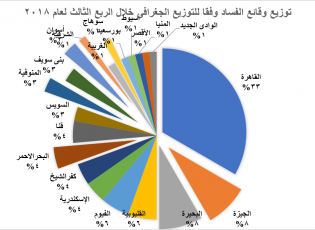Al-Ahram: 4 August 2016
Wrote : Nabil Abdel Fattah
It seems that laziness has become the statutory religion that the overwhelming majority of Egyptians believe in, transforming from a negative, abominable value to faith, a state of pleasure and enjoyment for some, and a form of rejection and anger at work conditions in the state's inflated institutions with unqualified or trained administrative and technical employment Performing the tasks assigned to them by others.
Laziness is no longer limited to the flabby state bureaucracy, which is close to seven million employees and workers, but has extended to some private sector sites, where laxity and technical skills decline, even in the field of marketing, buying and selling, and exceptions are few in every area of private work.
The question is: Is laziness as a predominant value due to labor inflation and the absence of conditions for productive work? Or to the imbalance of the wage distribution structure and the sense of unfairness and distributive injustice? Or is the laziness due to the desire of some in the administrative bodies to obtain bribes from those who seek and deserve government services?
In the official audiovisual media, for example, but not limited to, huge numbers in all sectors of work, reaching in some circulated figures 34 thousand employees, and the debt reached 23 billion pounds and the losses are continuous, and the general performance is characterized by laziness and excessive slack. Take also the numbers of the employees of the national press institutions, as they reached about 24 thousand, of whom 9.2 thousand are workers, and 10.7 thousand are administrators compared to four thousand journalists. The number of workers in the three major institutions - Al-Ahram, Al-Akhbar and Al-Gomhoria - is more than three quarters of the employees in all institutions The journalist, and the accumulated debts of these institutions reached 11 billion pounds. There is no embarrassment about the deterioration of professional, administrative and functional performance and the decline in its levels, and the impact of these huge and unqualified numbers - with some exceptions in the various sectors of journalistic work - on the performance of qualified and talented people, and the transformation of the power of the law of unqualified mass into one of the biggest structural obstacles to developing these institutions and raising their performance levels Journalist and keeping abreast of shifts in the profession globally and at technical levels. It seems to me that inflation, slackness and inefficiency of employment in these press and media institutions, and other administrative state agencies have become one of the biggest obstacles to development and development even within the framework of the capitalist option, because they have become a model for the value of laziness and idleness and the loss of motivation and motivation towards effective work - in quantity and quality -. This is due to the inflation of bureaucratic employment, the absence and weakness of the administrative infrastructure required to practice work, and the weakness of training and rehabilitation processes for technical and administrative workers in terms of technical and skills.
It also appears that the continuous collusion of the state authorities and the ruling elite to contain the anger of the bureaucratic apparatus, and their inability to resolve the imbalance in employment and wage structures, have led to the creation of bureaucratic fraud by adding incentives, bonuses and so-called points in some press institutions, in order to become an integral part of what he receives. The monthly and annual workers, regardless of hard work and achievement, and the lack of real profits, in a way that has become a huge burden on the state budget and the increasing debts of many national institutions and administrative bodies of the ministries. It also seems that the prevalence of laziness as a negative value, and the absence of individual incentives towards work as a collective and individual value that gives meaning to the life of the individual and the group, is due to the definition of the state apparatus and national and public institutions, in terms of the quality of employment with rural sources, and the expansion of appointment on the basis of families, families, villages and regions, in a manner. It has become in some institutions the inheritance of professions and jobs despite the violation of administrative regulations, regardless of competence or qualification, within the framework of the patronage and clientelistic networks common as one of the laws of illegal administration and bureaucracy. There is no doubt that this type of networks leads to the disruption of the principle of reward and punishment, and to mutual complications to evade responsibility for administrative and even criminal crimes in some cases. On the other hand, corruption networks seem to be the most dangerous thing facing the state apparatus, as its indicators increase and do not decline, for example, Partners for Transparency goes to 1,102 corruption incidents in 28 Egyptian ministries from July 2015 to June 2016, and the two ministries of supply - 215 cases Corruption - and localities - 127 - witnessed half of the corruption incidents that this organization monitored. Corruption, as a market for selling public services, leads to social distinctions between those who work seriously among workers and other corrupt people, which leads to an expansion of indifference and unwillingness to work for a few who work because the behavior of the corrupt discourages them, and inhibits them the incentive to work hard Because corruption and impunity spill over, or impunity, generates an environment of frustration. On the other hand, there is a general reason that helped spread laziness, which is the revolution of aspirations and heavy consumption, and its images propagated by the media, while the majority of citizens suffer from hardship and pressures of life and failure to fulfill their basic needs, which leads them to lose their motivation to work because it will not lead to Social mobility up, and then that produced aspirations without fulfillment, and then a climate of despair and frustration widened.
Short link: https://pfort.org/en/?p=1519













